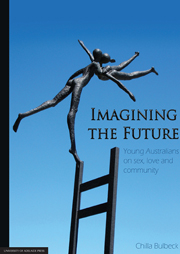Book contents
- Frontmatter
- Contents
- Acknowledgements
- Introduction
- 1 Essaying difference: Comparing essays across the sub-samples
- 2 Learning from their parents: Inter-generational change and continuity
- 3 Emotional literacy and domestic relations
- 4 Global visions and cramped horizons: Stories of class
- 5 ‘Intimate’ citizenship?
- Conclusion: Equality in the rhetoric, difference in reality
- Appendix 1 The questionnaires
- Appendix 2 The sample
- Appendix 3 Survey statistics
- References
- Index
4 - Global visions and cramped horizons: Stories of class
Published online by Cambridge University Press: 05 June 2013
- Frontmatter
- Contents
- Acknowledgements
- Introduction
- 1 Essaying difference: Comparing essays across the sub-samples
- 2 Learning from their parents: Inter-generational change and continuity
- 3 Emotional literacy and domestic relations
- 4 Global visions and cramped horizons: Stories of class
- 5 ‘Intimate’ citizenship?
- Conclusion: Equality in the rhetoric, difference in reality
- Appendix 1 The questionnaires
- Appendix 2 The sample
- Appendix 3 Survey statistics
- References
- Index
Summary
Introduction
As a Tax Officer I was able to help the government take other people's hard earned money and learn for the future the interesting loop holes which allow the rich to avoid paying as much tax as they possibly can. In other words I got my training for my next job … [as an accountant with] a large corporation to assist their shareholders in tax avoidance schemes. (Matthew, Protestant college student, Perth, a ‘member of the Liberal Party’ who is ‘against the greens and Socialist alliance parties’)
I once knew a guy called Paul who thought that he was pretty cool. Now, however he is homeless, and sleeps with aboriginals in the park. (male, Catholic College student, Perth)
The puzzle Beck sets out to address with his notion of Risk Society is why ‘the structure of social inequality in the developed societies displays a surprising stability’, yet ‘the living conditions of the population have changed dramatically’ (Beck in Woodman 2009: 248) and ‘questions concerning inequality are no longer perceived and politically handled as class questions’ (Beck and Beck-Gernsheim 2002: 30).
In the 1950s and 1960s the family wage brought the Australian dream within the reach of working class as well as middle class men. Most could be ‘workers, fathers, sportsmen, beer drinkers, home handymen’, although women's role was confined to ‘full-time housewives and mothers’ (White 1992: 165). Today the working class is more fragmented into those who might still dream but have little chance of owning a house and car, and the aspirationals whose scramble into prosperity requires large mortgages and two incomes.
- Type
- Chapter
- Information
- Imagining the FutureYoung Australians on sex, love and community, pp. 131 - 166Publisher: The University of Adelaide PressPrint publication year: 2012



